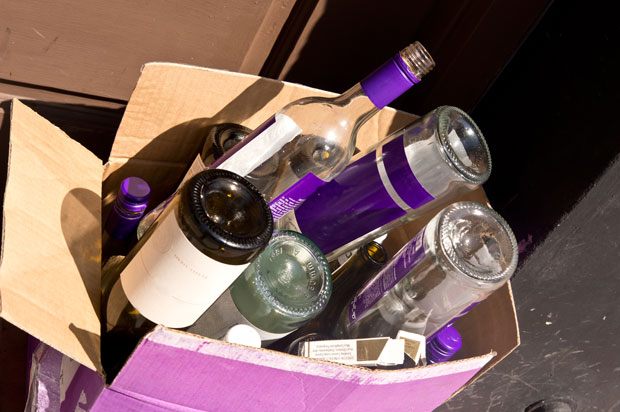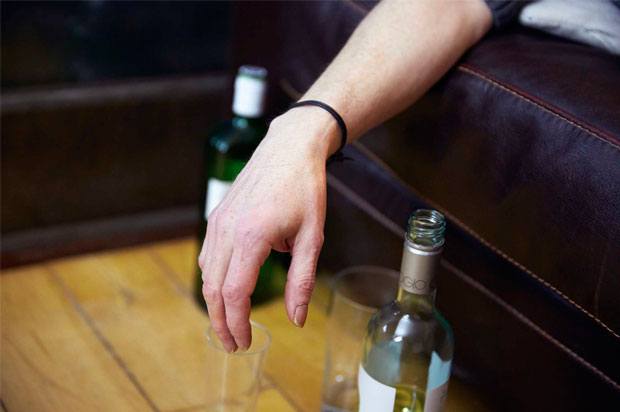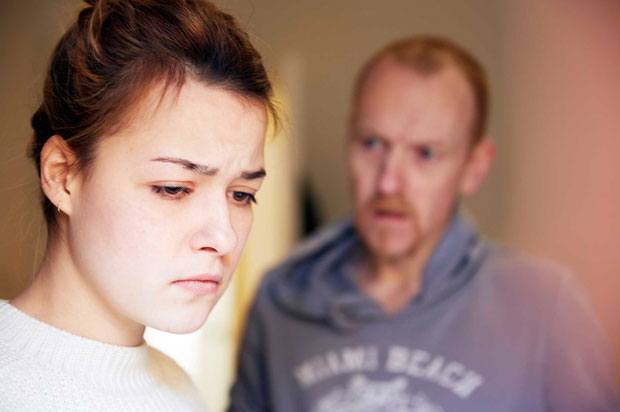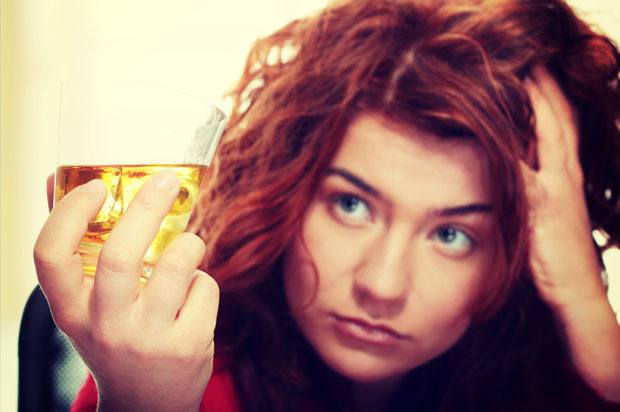Binge drinking
Britain is known for its binge drinking culture, but do you know what effect it's having on your health?

The morning after clean up - when you realise how much you drank
What is binge drinking?
People drink for all sorts of reasons, mostly because in moderation alcohol helps you relax and feel more sociable. Binge drinking is all about boozing simply to get drunk.
There are many different definitions of binge drinking, and they tend to be a bit vague. A 2005 government report described binge drinking as ‘the consumption of excessive amounts of alcohol within a limited time period’, which can mean different things to different people.
Another commonly used definition is ‘the consumption of twice the daily benchmark given in the Government’s guidelines’. This equates to six to eight units for men and four to six units for women in one sitting.
How do I know how many units I’m drinking?
Here are some rough examples of how many units are in typical drinks:
- Half a pint of beer or cider = 1.5 units;
- A small glass (125ml) of wine = 1.5 units;
- A single measure of spirits (e.g. whisky, vodka, rum or gin) = one unit.
The number of units can vary according to the brand of drink and whether you’re male or female. For a more accurate picture check out Drink Aware’s unit calculator and add up all the units you’ve drunk this week.
What are the effects of binge drinking?
Only you can take responsibility for your relationship with drink. It’s just worth being aware of the impact binge drinking can have on your life.
- Accidents happen: Statistically-speaking, if you’re completely wasted you’re more likely to harm yourself by falling into bushes or stepping out into moving traffic. Drunken drivers are another clear hazard, especially if you’ve gone along for the ride, and as alcohol affects judgement you may well agree to something you’d never do sober. It’s estimated that alcohol features in 20-30% of accidents, and if you’re comprehensively slaughtered from a holiday binge session then obviously things are more likely to go wrong for you.
- Crime time: Binge drinking can bring you into contact with crime in several ways, as a victim or villain. For example, 76,000 facial injuries in the UK each year are linked to drunken violence. Alcohol is a major factor in 33% of burglaries and 50% of street crime. In short, you’re vulnerable when smashed, and not in full control of your judgement, whether you’re swinging a punch because you’re plastered or getting decked by someone more drunk than you.
- Bad skin: A heavy session can cause dehydration, which means your skin can miss out on a supply of vital nutrients.
- Increased blood pressure and heart rate: Binge drinking on a regular basis can cause heart problems with your ticker later in life.
- Liver problems: Alcohol in the body is processed by your liver. A heavy session places a big strain on this vital organ, and if you make it a regular date you run an increased risk of a disease called cirrhosis, in which liver cells turn to scar tissue. It may not seem like a big deal now, but if the disease goes too far there is no cure.
- Foot in mouth problems: Heavy drinking messes with your coordination, not just physically but speech-wise, too. Getting seriously drunk might give you the Dutch courage to make a move at the office party, but consider what kind of result you can hope to achieve in that condition. Slurring your words isn’t much of a turn on, while statistics suggest one in five binge drinkers who do pull regret it afterwards.
- Binge behaviour: Binge boozing on a regular basis can shape your future drinking habits, often leading to a harmful relationship with alcohol.
Give me the stats
Are you sure? They don’t exactly paint a pretty picture. In 2009 a survey found young people in the UK are the third worst binge drinkers in the EU. What’s more, the Joseph Rowntree Foundation found that over 50% of 15 to 16 year-olds have participated in binge drinking, and another report showed that 44% of 18 to 24-year-olds are regular binge drinkers.
Next Steps
- Drinkaware offers advice and information on alcohol and your drinking habits.
- Are you drinking too much? Drinkaware has a useful self assessment tool to help you discover if your drinking habits are healthy, or something to worry about.
- Chat about this subject on our Discussion Boards.
- Need help but confused where to go locally? Download our StepFinder iPhone app to find local support services quickly.
By
Updated on 29-Sep-2015
Photo of empty bottles by Shutterstock.
No featured article













